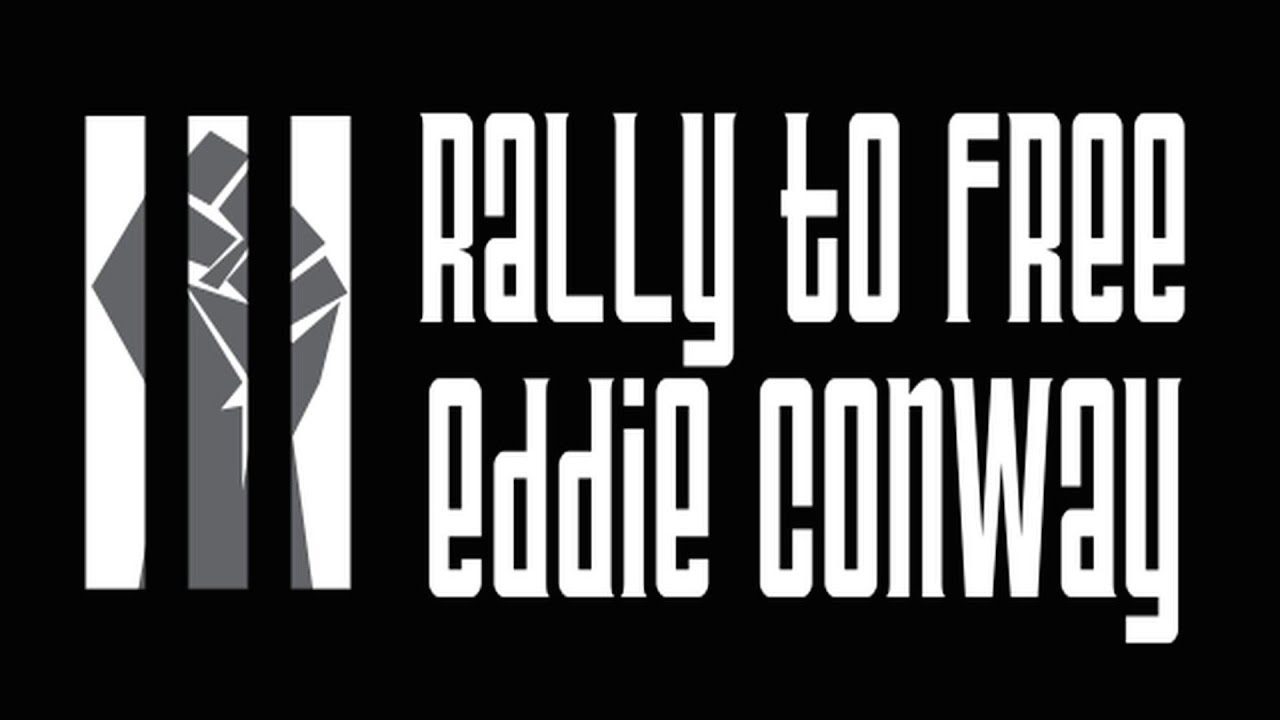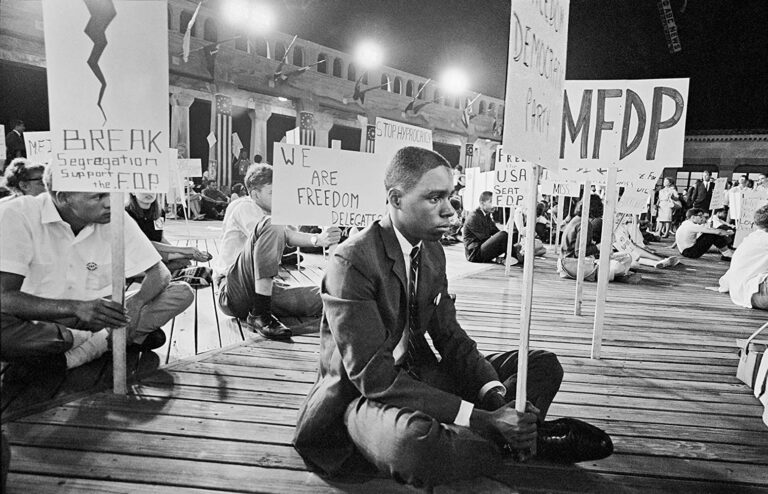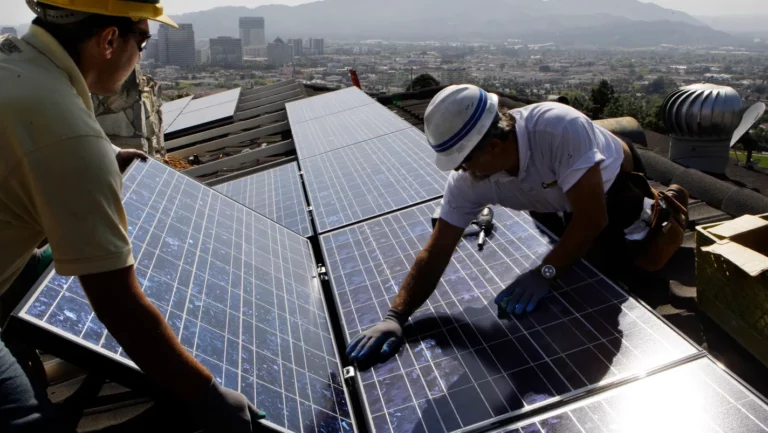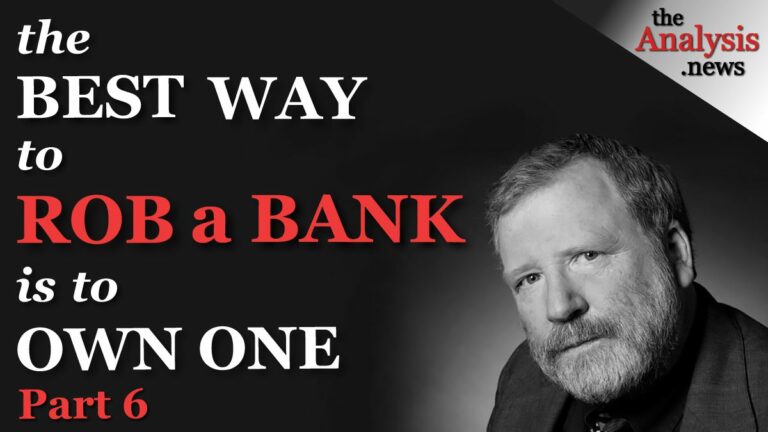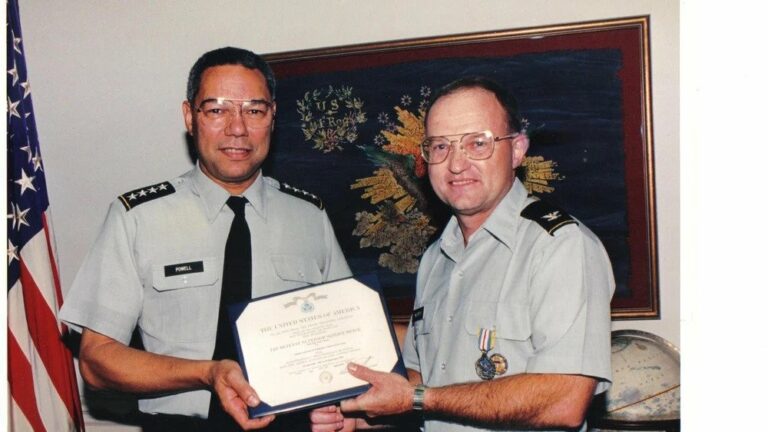I Refused to be Treated Like an Animal – Eddie Conway on RAI (8/12)
Mr. Conway says after 44 years in prison, he considered people to be of value and to be respected and refused to be dehumanized himself. This is an episode of Reality Asserts Itself produced on September 16, 2014.
PAUL JAY, SENIOR EDITOR, TRNN: Welcome to The Real News Network. I’m Paul Jay, and this is Reality Asserts Itself.
We’re continuing our series of interviews with the former Baltimore Black Panther Eddie Conway. And in his book, Marshall Law: The Life & Times of a Baltimore Black Panther, after spending a great deal of time in solitary confinement, Eddie in his book writes this–a book, I should add, that was written while he was in prison:
The time in the hole had forced me to quiet reflection and contemplation. I resolved to never give up my struggle for freedom for me or my people. So the penitentiary represented to me just another level of struggle.
Now joining us again in the studio is Eddie Conway.
Thanks for joining us again.
EDDIE CONWAY, FMR. BLACK PANTHER, BALTIMORE CHAPTER: Okay.
JAY: You write here in the part I just quoted about continuing the struggle. And elsewhere, in a few other places, you write about the decision–it’s almost a decision, in a sense, to defend your humanity. I mean, if prison’s anything, it’s about dehumanizing people, and you don’t get dehumanized. I mean, even after 44 years–I know when–I’m around when other people meet you, and they ask you, you know, how are you so calm? Why aren’t you furious and bitter? Why aren’t you? Or are you?
CONWAY: Well, sometimes I question that myself. But no, I’m actually not. I think that early on I decided–well, the first thing was that there was a line in the sand as far as I was as concerned, and my position was that if the police didn’t bother me, I wasn’t going to bother them. It took us seven years to reach the agreement.
JAY: You mean the guards, you mean.
CONWAY: Yes, the guards. It took us seven years to reach that agreement. And finally they decided, well, okay, we’re not going to bother you. And at that point then, I decided that I could move away from the combat mode. And that’s pretty much how I seen it. Initially when I went into prison–and I just have to kind of, like, give you an example. The very first day I got into prison, I sat down in the mess hall to eat, and they made everybody get up and leave. And I hadn’t even had finished my food. So I just–I continued to eat. And they gathered around me and threatened to attack me because I wasn’t leaving. And the other prisoners came to my assistance and demanded that I be allowed to eat. And I couldn’t figure out why you would give a person a plate of food and then halfway through the meal you would just bang on the table and say, get up, let’s go.
JAY: Now, just let me set some context I know from the book. This is at a time when there’s at least 40 people that are in the Panthers, maybe another hundred want to join the Panthers, and you’re considered one of the important leaders from the Panthers from this region. So there’s a kind of a drama even the moment you get there.
CONWAY: Yeah. You know. So at that point I basically decided that, well, okay, you all are not going to treat me like an animal. And we went back and forth with that until such a time that we finally had an agreement that they wouldn’t treat me like an animal and they would treat me like a human being. And then, from that point on, I pretty much could relax and be myself.
JAY: You’re talking after almost seven years of solitary confinement.
CONWAY: Seven years, yes, of conflicts and challenges and refusal to participate in being treated like an animal.
JAY: When you’re in solitary, what have you got? I mean, can you read?
CONWAY: That’s pretty much all you have. You can read. And I did do too much reading, in fact.
JAY: What did you read? What did you have?
CONWAY: I read everything I could get my hands on. And initially I just read a lot of stuff about black history. I just read a lot of stuff about culture. I read a lot of stuff about world history.
JAY: People could send you books?
CONWAY: Yes, people could send books, and we smuggled books in. And fortunately for me, when I initially got in the prison system, I set up a system, a library; I set a library up in the prison. There was, like, 2,000 people there and no library. So I set a library up in two of the cells, up in the prison. And then I set up a survival program that would allow us to send stuff back and forth over to the people in lockup. And so that worked for me also, because I actually used it.
And so I got books and I read, and I held political education classes at night for the rest of the guys that wanted to participate. Matter of fact, the whole–something like four or five hundred guys would just be quiet, and they would allow for, like, political education. And so we did a lot of that. And we did have illegal radios that we smuggled around through the back channels of the cells, so you did get to listen to a program here or news there if some kind of event happened. But there were no TVs and there were no–pretty much nothing else. Yeah.
JAY: When you’re alone with your books for almost seven years, what happens in terms of your political resolve? And do you start to wonder, did I make a mistake?
CONWAY: Well, for me, I really took advantage of it. And I think–I studied history. I studied other people’s struggles. I studied people’s writings and teachings. And I got a chance to look at people that at that time I thought–.
JAY: Who made an impression on you?
CONWAY: Well, I was always impressed by Che Guevara. I was always impressed by Fidel Castro or Mao. Lumumba. I was even at that time impressed by Jomo Kenyatta, Kwame Nkrumah. At that time, I was looking at what was going on with the PLO, what was going on in Mozambique or Angola. I was looking at the struggles that were going–obviously, in Vietnam and, you know, just, basically, in Europe, in Italy, in Belfast, etc. I was just looking at what was going on in terms of all of those conflicts. And basically I was studying history. And at some point I think I got to the point where I just started looking beyond those struggles to try to see back in the past what happened that caused those struggles to happen, what happened that created those conflicts between those people. And so I end up actually studying history. And I kind of consider myself a student of history now, even though it’s just on the surface.
JAY: So while you’re in solitary for this almost seven years, you’re in and out, in and out; like, you’d have a stretch, and then you go, and something happens and they throw you back in. And while this is all happening, you’re actually organizing a local Black Panther organization in the prison.
CONWAY: Yes, and a prisoners labor union.
JAY: What happened with the union? It was an attempt to organize a straightforward union, wasn’t it?
CONWAY: Yeah. Yeah. We did. We actually organized a union. The organizing was successful. The allowance of it to exist wasn’t. That was one of the reasons they created the little gang, to kind of, like, disrupt that organizing.
JAY: Yeah, we talked about this in the last segment, a gang of sort of young street gang people that were used by the prison authorities to oppose the political organizing.
CONWAY: Yeah. And eventually they locked up all the union leaders, the union organizers, which, of course, obviously, I was one of them, and they shut down to the union, because we had followed all the rules, we had followed all the regulations. There was no conflict. We met the criteria. We were accepted by the union, 1199E. We had an outside board.
JAY: That’s SEIU.
CONWAY: Yeah. And we actually had a charter, a constitution in there. And we had met all the guidelines. And we had–a significant amount of the population had actually signed up for the union, so we even qualified in terms of numbers.
And at that point they created an incident.
JAY: “They” being the prison authorities.
CONWAY: Yeah, the prison authorities created an incident. And initially we couldn’t understand why or what is going on. But they–at that time then, there was actually junkies in the prison population, and they had them climb up on the walls inside the prison at the top of the windows and created a security conflict. They weren’t going anywhere, but they were just hanging up in kind of, like, the rafters up in the ceiling. And, of course, it was detrimental, ’cause if one of them had have fell off, it was, like, five stories and concrete on the ground. They would have actually injured theirself. But we couldn’t figure out why these junkies were doing that. And, of course, they used that to lock everybody up, lock the prison down. And we couldn’t figure out what it was about. But ultimately they said that they were up there to support the union. Well, we know they weren’t. They never signed up for the union. They were worrying about getting their drugs. The administration was giving them drugs. And they used them to kind of, like, bar out the outside–. We had a congressman–Parren Mitchell, in fact, he was our outside adviser. We had the person that owned all–the woman that owned the black radio stations in Maryland, she was our adviser. We had two other high-profile representatives in addition to the president of the 1199E union. And they bought all them out and claimed that they had instigated trouble inside the prison. They were no longer–the congressman, of course, they would no longer allow–.
JAY: And the union was to represent union work–I mean, prison labor,–
CONWAY: Yeah. Yeah. We were asking for a minimum wage.
JAY: –’cause you’re working, like–.
CONWAY: We was asking for a minimum wage. And we thought that was the best way to have prison reform. We thought that, okay, we didn’t want a riot like they did in Attaca. We didn’t want to practice guerrilla warfare like they were doing in California with George Jackson. We figured that the best way to get prison reform was to get a minimum wage.
JAY: And what they did is they locked up the leaders of union.
CONWAY: And they disbanded the union, and they made it an illegal act to have any union materials or to organize any union in the future. Yeah.
JAY: From the day you got there, practically, you didn’t follow the maxim, from what I’ve understood, which is shut your mouth and get along and do your time. You’re organizing almost constantly. What is that in you? I mean, you would have had an easier time, one would think, if you had shut your mouth and done your time.
CONWAY: Well, I guess there was a point–and it goes all the way back to probably one of our first interviews–a point in Europe where I realized that there was a problem here in America and a problem in the sense of how we were treated.
JAY: Just to remind people, you were in the Army in Germany for three years in Europe.
CONWAY: Yeah. And at that point I decided to come and try to help straighten that problem out. And it just–the more I worked on it, the worse it appeared. The more I studied it, the more frightening it was. And I realized that we really had a serious problem. And it extended all the way into the prison system.
JAY: But you don’t ever waver. Like, you set yourself down this course, and you don’t ever waver. And you were married, and to some extent the marriage breaks up, I understand from the book, partly about the extent of your political commitment. You had a son who you didn’t get to see much of.
CONWAY: Yeah. Well, I think it’s–for me it was a sense of consciousness and it was a sense that my family was the world and that my family was larger than my individual family members, and that somebody had to have some responsibility in terms of challenging what was happening to us. And I think all throughout history there’s always been people like that. And I guess that it just fell upon my shoulders at some point, kind of late in life, because I was, like, 21 or something when it finally dawned on me that there was problems. Yeah.
JAY: But lots of people know there’s problems. But they don’t stick their neck out and make the commitment for change that you have.
CONWAY: That’s probably true, because, like you say, I mean, a lot of people want to be safe. You know.
I think the one thing, especially–I think probably putting me in prison was probably one of the things that just aggravated that whole situation for me, because I did not want to be–and I can’t even believe that there was any kind of way I would have ever accepted being treated like an animal. Didn’t want to be dehumanized. I wasn’t. I was a grown man. And I looked at humans, you know, as people that should be valued and respected. And I just didn’t understand how that kind of abuse could happen, either outside in the community or even in the prison system. And it was just nothing that I was going to tolerate.
JAY: Okay. We’ll continue.
Please join us for the next part of our series of interviews with Eddie Conway on Reality Asserts Itself on The Real News Network.
“Marshall “Eddie” Conway was an American black nationalist who was a leading member of the Baltimore chapter of the Black Panther Party who in 1971 was convicted of murder of a police officer a year earlier, in a trial with many irregularities.”
